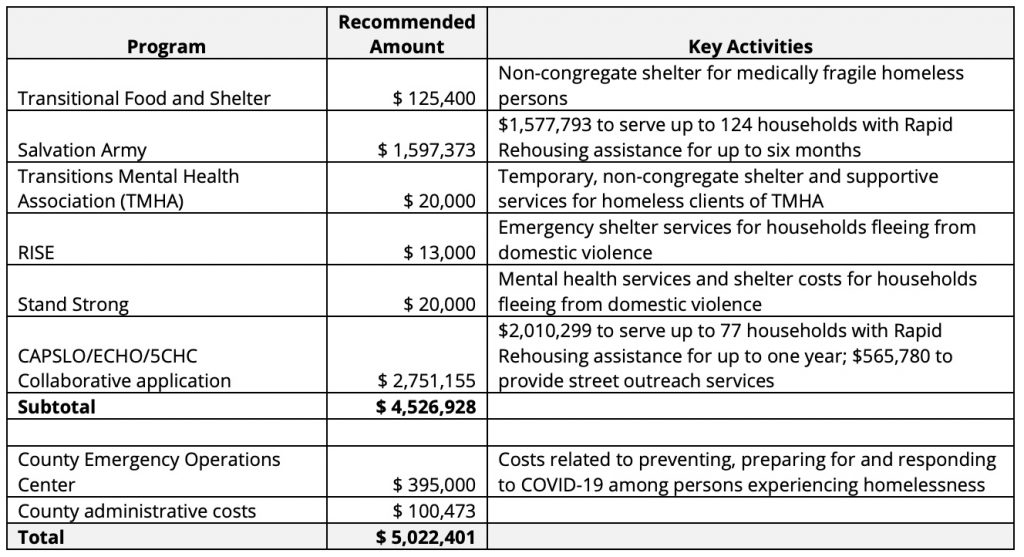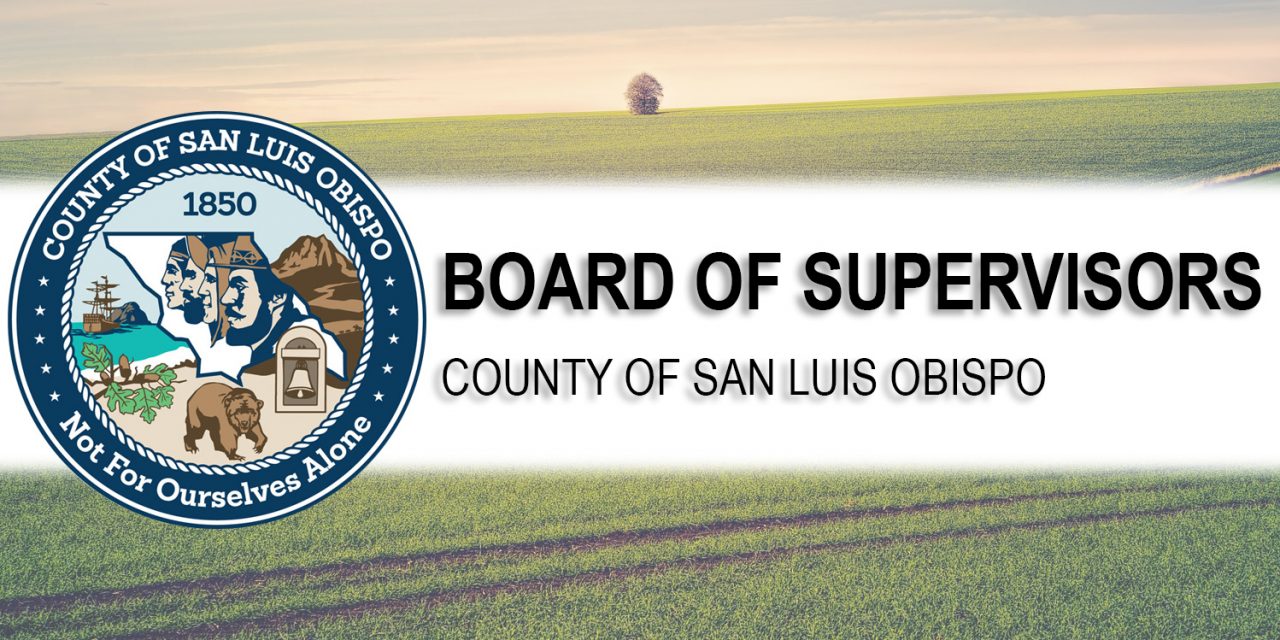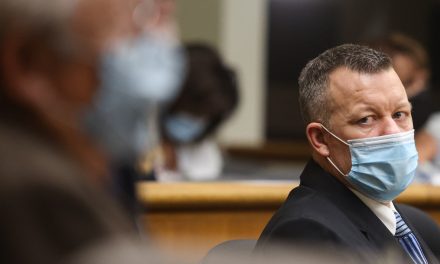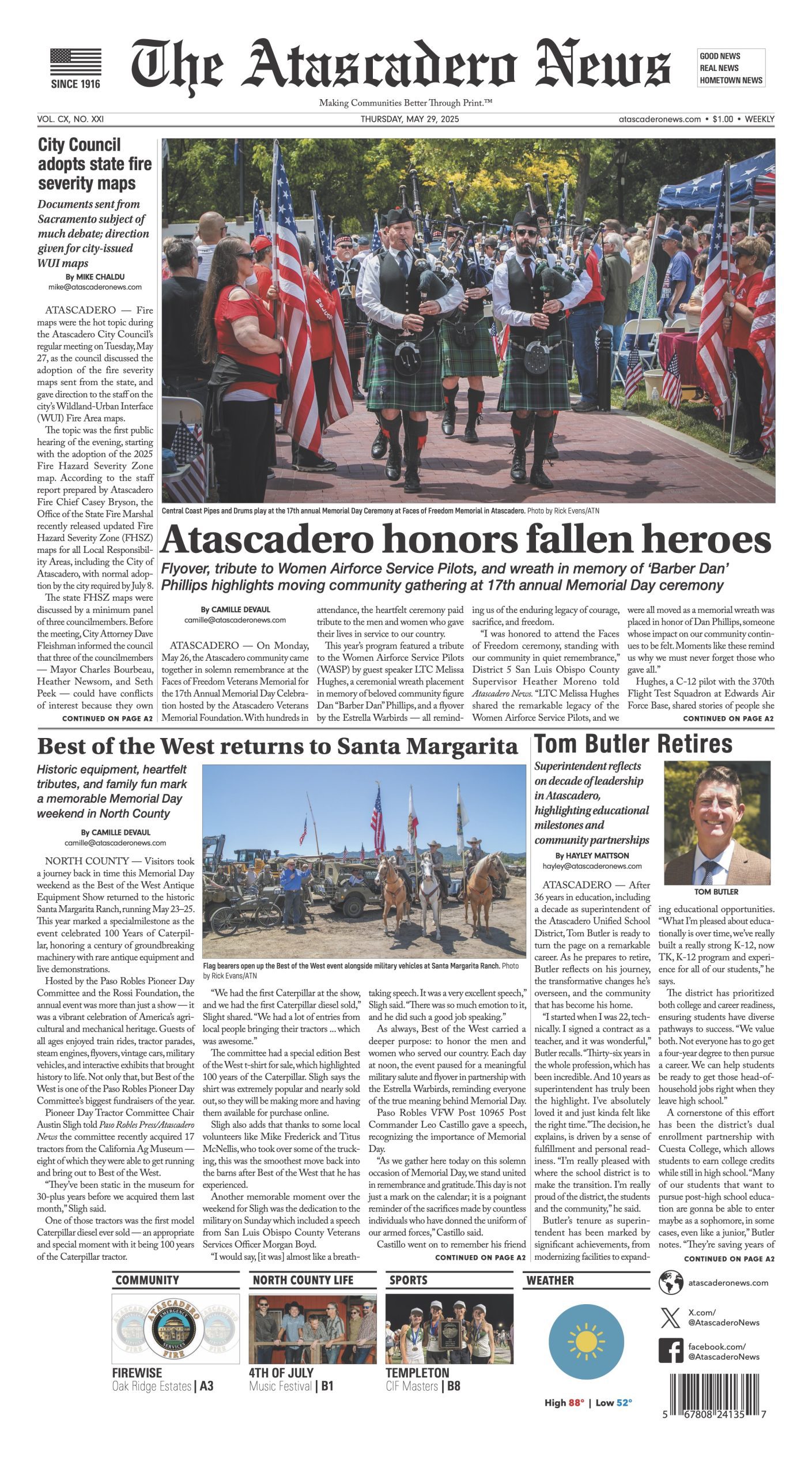Board voted to authorize initiating litigation against Sprouse Communications during work on Monterey Road
SAN LUIS COUNTY — The Board of Supervisors met for a regularly scheduled meeting at 9 a.m. on Feb. 9.
The meeting began with the consent agenda, which was passed by the Board with a 5-0 vote.
Next, Penny Borenstein, the Public Health Director, spoke on agenda item 19, the COVID-19 update. While the county has seen an increase in the last three months, she states, “we are definitely moving in the right direction,” with the positivity rate dropping from the all-time high of 11.1 percent in January to 5.9 percent last week.
Borenstein ended her report with an update on the state’s position on religious services in terms of COVID-19 regulations. This comes directly after the Supreme Court gave a partial win to churches fighting California’s limits on indoor worship services. Borenstein stated that while formerly banned, religious entities are now permitted to hold indoor services with 25 percent capacity in the purple and red tier and 50 percent when counties move to orange or yellow. The one remaining restriction being that singing and chanting is still prohibited due to the higher transmission rate of these activities in indoor settings.
The Board then heard from members of the public who were concerned with not only the current homeless population but also those facing homelessness due to financial constraints.
Supervisor Bruce Gibson spoke in response to the callers, “The county has access to some 17 million dollars that could be used to address those behind in their rent and threatened with eviction eventually. By some estimates, that may be less than half of the rent debt accumulated in the county…. I’ve been very concerned with our ability to address this.” He then suggested creating a task force to address the complex housing issue facing the county. “This is something I’m very interested in seeing move forward aggressively and effectively.”
Laurel Weir, the Homeless Services Coordinator, presented on agenda item 22. She spoke on the proposed allocation of the state-funded Emergency Solutions Grant Funding Program – Corona Virus (CA ESG-CV).
The eligible activities under CA ESG-CV are emergency shelter, street outreach, rapid rehousing, but not homelessness prevention, as the state mandates that first all homeless must be housed before homelessness prevention can be addressed.
The recommendation to the Board was to approve the set allocations, as presented in the table below, which was approved in a 5-0 vote.

The Board then went to closed session, and upon returning at 1:30 p.m., stated that during the closed session the Board voted to authorize the initiation of litigation against Sprouse Communications for improperly hitting a pipeline during work on Monterey Road in Atascadero.
Next, the Board had their hearing to consider an appeal (APPL2019-00019) by Kenneth Cottrell and Stephanie Shakofsky of the Planning Commission’s approval of a request by 13350 River Road LLC (formerly Helios Dayspring) for a Conditional Use Permit (DRC2018-00036) to establish up to three acres of outdoor cannabis cultivation, up to 22,000 square feet of indoor mixed-light cannabis cultivation, up to 27,570 square feet of ancillary cannabis nursery, and operation of a non-storefront dispensary at 13350 River Road, east of the community of San Miguel. The project is within the Agricultural land use category and the Salinas River Sub Planning Area of the North County Planning Area.
The main points of the appeal were in regard to water usage and noise and odor nuisances to the surrounding 40 plus homes within 1000 feet of the project.
After hearing from both the applicant (who currently operates facilities in other locations under the name Natural Healing Center) and appellant regarding the issue, the Board went to public comment where they heard from tens of employees touting Natural Healing Center as “a local company, run by locals, and we need local government support in order to continue achieving and progressing.”
In favor of the operation was Jim Dantona, president, and CEO of the SLO Chamber of Commerce, who stated his support of this project and stated, “once our governmental entities have set the rules, the chamber is an advocate for allowing our doers and dreamers to reasonably rely on those rules and not be subject to changing, different or contradictory rules for similar uses.”
Several community members called in, in opposition of the project with concerns over the accuracy of the data presented in the water study, the capacity to effectively mitigate the odor with the high winds in the area, as well as the potential risk involved as the area has low response times from the Sheriff’s department.
Janice Brown, a resident of San Miguel, addressed concerns with the water usage, citing the drought in 2018 and the need to drill a new well at her residence on Mission Lane, which was delayed by several months due to the high demand of wells to be drilled across the county.
The Board returned to the final discussion on the topic and addressed their concerns.
Supervisor Debbie Arnold, who is historically in favor of changing the water usage guidelines to allow for agriculture to continue, stated that the project seemed to require too many mitigations to be a good fit for the location.
Supervisor Dawn Ortiz-Legg stated, “This is a legal industry, it’s an industry that has provided a lot of jobs… but I do think that it is really important that the applicant reach out to the neighbors. This does require a good neighbor policy. I think it is something that people can work out, though.”
The matter was put to a motion to deny the appeal and let the project continue, with Supervisor Arnold and Chairperson Compton voting against it and Supervisors Gibson, Peschong, and Ortiz-Legg voting in favor.
The full meeting can be viewed here the next meeting is scheduled for Mar. 2.














